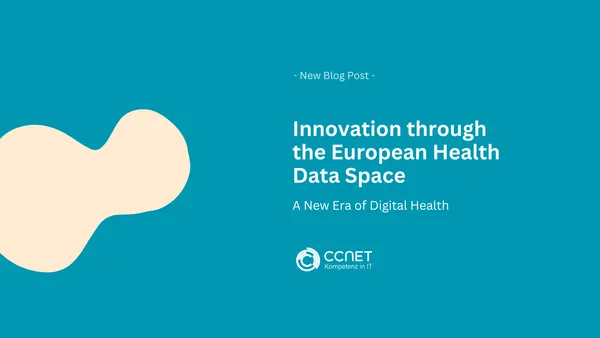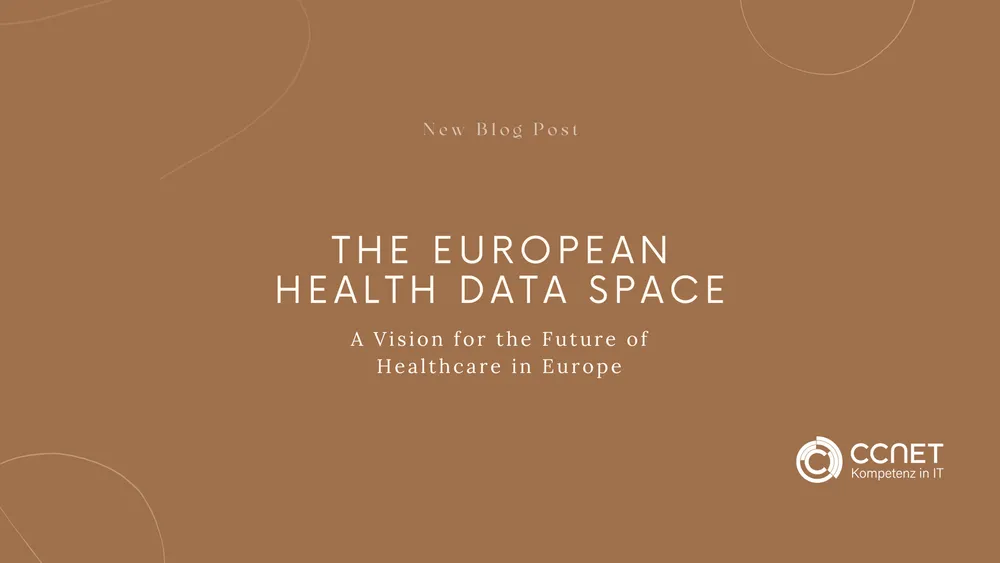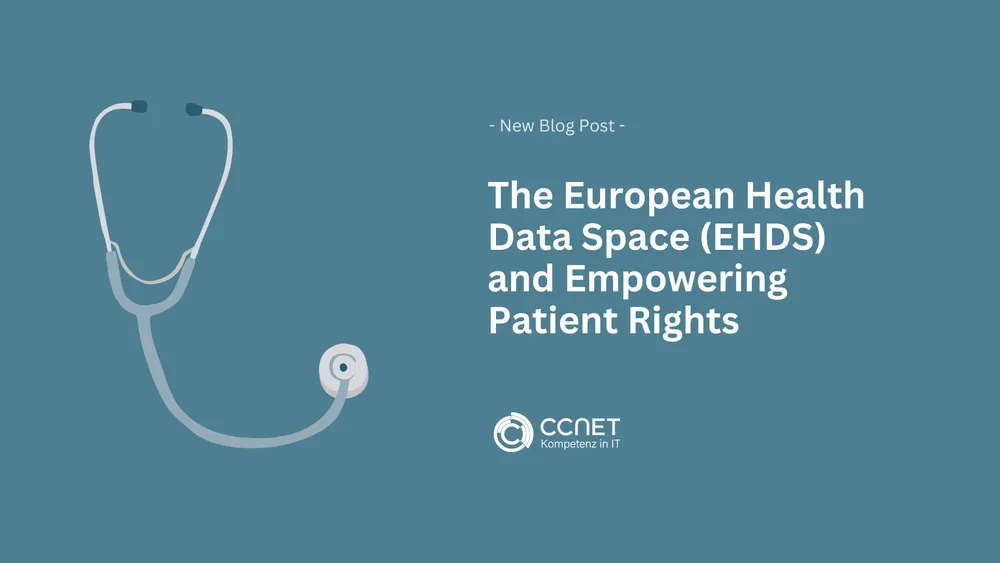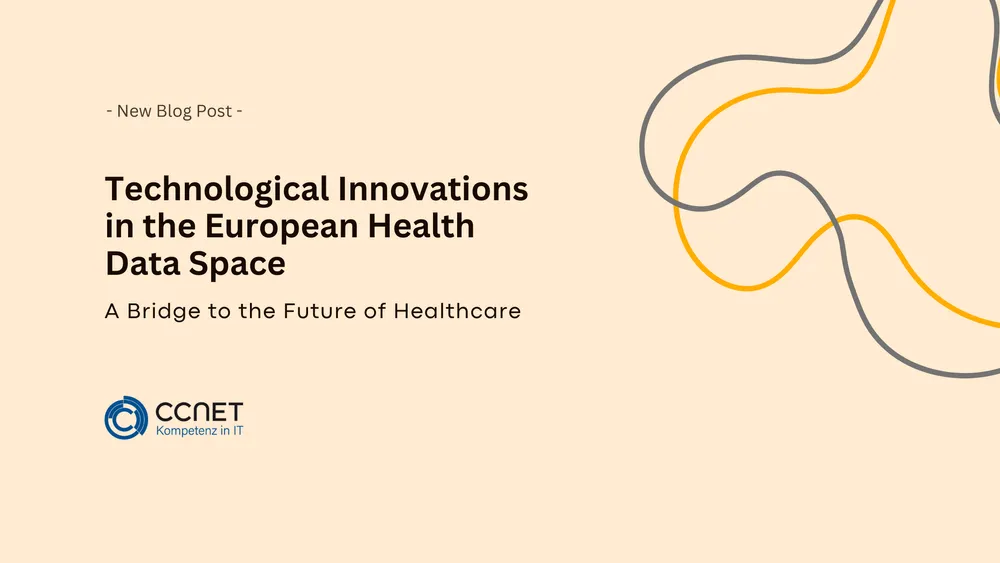
CCNet
Sep 4, 2024 • 2 min read

Innovation through the European Health Data Space: A New Era of Digital Health
The European Health Data Space (EHDS) is at the forefront of this challenge, revolutionizing not only the access to and exchange of health data throughout the European Union (EU) but also implementing unprecedented measures for privacy protection and data security. In this blog post, we will discuss the importance of data privacy and security within the EHDS framework, shed light on the implemented measures, and discuss their impacts on citizens, researchers, and healthcare providers.
The Priority of Data Privacy in EHDS
At the core of EHDS lies the goal of establishing a secure and seamless framework for handling health data. Given the sensitivity of this information, privacy protection is not only a legal obligation but also a fundamental necessity to gain and maintain citizens' trust in the system. Therefore, data privacy and security are not afterthoughts but fundamental pillars upon which EHDS is built.
Implemented Measures to Ensure Data Privacy and Security
EHDS is based on a robust legal foundation that ensures the protection of personal data in line with the EU's General Data Protection Regulation (GDPR). Key measures include:
- Stringent access controls: Access to health data in EHDS is strictly regulated, with only authorized users accessing specific data for approved purposes.
- Data minimization: EHDS follows the principle of data minimization, ensuring that only data necessary for a specific purpose are processed.
- Encryption and anonymization: To ensure data security during transmission and storage, EHDS relies on advanced encryption technologies and, where possible, data anonymization.
- Transparency and control for citizens: EHDS promotes transparency by providing citizens with comprehensive information about the use of their data and granting them extensive control options, including the ability to object to the processing of their data (Opt-out).
Impacts on Citizens and the Healthcare System
The stringent data privacy and security measures of EHDS have far-reaching impacts. For citizens, these measures mean greater control over their personal information and the assurance that their data is protected. This fosters trust in digital healthcare services and may lead to increased willingness to utilize digital health solutions.
For researchers and healthcare providers, EHDS's data privacy and security policies provide a clear framework for accessing and using health data. This facilitates research and innovation while ensuring the privacy of citizens.
Challenges and the Way Forward
Despite comprehensive measures to ensure data privacy and security, EHDS and its stakeholders face challenges. These include addressing the technical and organizational complexity associated with implementing data protection measures and adapting to constantly evolving cyber threats.
The success of EHDS depends on continuously evaluating and adapting data privacy and security measures to ensure the protection of health data in a changing technological and regulatory environment. Close collaboration between member states, healthcare providers, and technology providers is crucial to achieving EHDS's goals and maintaining a high level of data privacy and security.
Conclusion
Data privacy and security in the European Health Data Space are crucial for protecting citizens' privacy and fostering trust in the EU healthcare system. By implementing stringent measures, EHDS sets new standards for handling health data and paves the way for secure, efficient, and patient-centered healthcare in the EU. While challenges remain, EHDS provides a solid foundation upon which a new era of digital health in Europe can be built, for the benefit of all citizens.


